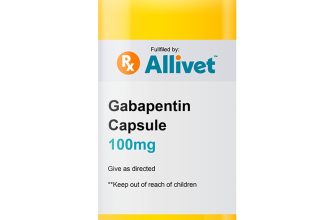Excessive use of amoxicillin can lead to serious health issues. Following prescribed dosages is critical to avoid potential side effects. While amoxicillin is effective in treating bacterial infections, taking it in higher amounts than recommended can result in adverse reactions, including gastrointestinal disturbances, allergic responses, and even antibiotic resistance.
The risk of developing antibiotic resistance increases with improper use. When bacteria become resistant, standard treatments may no longer work, resulting in prolonged illness and complications. It’s essential to complete prescribed courses rather than self-adjusting the dosage based on perceived improvement.
Some individuals may experience side effects such as nausea, vomiting, or diarrhea. If these symptoms persist or worsen, consult a healthcare professional. They can assess your situation and determine the appropriate course of action. Recognizing and addressing these issues promptly can prevent more severe complications down the line.
- Can Too Much Amoxicillin Hurt You
- Recognizing Symptoms of Overdose
- Safe Usage Recommendations
- Understanding Amoxicillin and Its Uses
- Common Uses of Amoxicillin
- Administration and Dosage
- Symptoms of Amoxicillin Overdose
- Potential Side Effects of Excessive Amoxicillin Intake
- Who is at Risk of Amoxicillin Overdose?
- Individuals on Multiple Medications
- Elderly Patients
- What to Do If You Suspect an Overdose
Can Too Much Amoxicillin Hurt You
Yes, excessive amoxicillin can lead to harmful effects. Taking more than the prescribed dosage increases the risk of side effects such as gastrointestinal issues, including diarrhea, nausea, and vomiting. In some cases, it may also contribute to antibiotic resistance, making future infections harder to treat.
Recognizing Symptoms of Overdose
If you or someone else has ingested too much amoxicillin, watch for symptoms like severe diarrhea, skin rashes, or allergic reactions. Immediate medical attention is necessary if these symptoms occur. Regular monitoring of dosage is crucial to prevent these situations.
Safe Usage Recommendations
Always adhere to your healthcare provider’s instructions. Complete the entire course, even if you feel better before finishing the medication. This practice helps to prevent antibiotic resistance. Store amoxicillin at room temperature and away from moisture, ensuring its effectiveness. If you have any uncertainties about dosing, consult your doctor or pharmacist for clarification.
Understanding Amoxicillin and Its Uses
Amoxicillin effectively treats various bacterial infections, including ear infections, pneumonia, and urinary tract infections. It belongs to the penicillin class of antibiotics, which disrupts bacterial growth by interfering with their cell wall synthesis.
Common Uses of Amoxicillin
Doctors frequently prescribe amoxicillin for conditions such as strep throat and sinusitis. It is favored because of its ability to target specific bacteria while minimizing the impact on beneficial bacteria. This targeted approach helps reduce the risk of antibiotic resistance.
Administration and Dosage
Amoxicillin is available in various forms, including capsules, tablets, and liquid suspension. Dosage may vary based on the infection type and patient age. Adults typically require 500 mg every 12 hours or 875 mg every 12 hours for severe infections. It’s critical to adhere to the prescribed course to prevent recurrence and ensure the antibiotic remains effective.
Symptoms of Amoxicillin Overdose
Amoxicillin overdose can lead to various symptoms that require immediate attention. Recognizing these symptoms early ensures prompt management and reduces complications. Common signs include:
| Symptom | Description |
|---|---|
| Nausea | A feeling of sickness with an inclination to vomit. |
| Vomiting | Expelling contents of the stomach through the mouth. |
| Diarrhea | Frequent, loose, or watery bowel movements. |
| Abdominal pain | Discomfort or pain in the stomach area. |
| Allergic reactions | Rashes, itching, or swelling, particularly of the face, lips, or tongue. |
| Dizziness | A sensation of spinning or losing balance. |
| Headache | Feeling of pain or discomfort in the head or neck area. |
If you notice any symptoms of overdose, seek medical help immediately. Early intervention can prevent further health issues and ensure better outcomes. Always follow prescribed dosages to minimize risks associated with amoxicillin use.
Potential Side Effects of Excessive Amoxicillin Intake
Excessive consumption of amoxicillin can lead to several side effects that may affect various systems in the body. Understanding these effects can help users take informed actions when using this medication.
- Gastrointestinal Issues: Overuse can cause nausea, vomiting, diarrhea, and abdominal pain. These symptoms often arise due to disruption of the natural gut flora.
- Allergic Reactions: Skin rashes, itching, or hives can occur. Severe reactions may lead to anaphylaxis, which requires immediate medical attention.
- Clostridium difficile Infection: An imbalance in gut bacteria can trigger this serious infection, resulting in severe diarrhea and colitis.
- Kidney Effects: High doses can lead to renal impairment, characterized by increased creatinine levels or reduced urine output.
- Liver Damage: Elevated liver enzymes may indicate stress on the liver, potentially leading to jaundice in severe cases.
- Superinfections: Extended use increases the risk of infections caused by resistant bacteria, defeating the purpose of the antibiotic.
Consult a healthcare professional if you experience any adverse reactions. Maintaining the prescribed dosage helps avoid these complications and enhances the effectiveness of the treatment.
Who is at Risk of Amoxicillin Overdose?
Individuals with kidney problems face a higher risk of amoxicillin overdose. Impaired kidneys struggle to filter medications effectively, leading to the accumulation of the drug in the system. This necessitates careful dosage adjustments under medical supervision.
Young children, especially those under two years old, may also be at risk. Their smaller body weight makes them more susceptible to the side effects of excessive amoxicillin. Always consult a pediatrician for appropriate dosages.
Individuals on Multiple Medications
People taking several prescription medications should monitor their amoxicillin intake closely. Drug interactions can reduce the effectiveness of treatment or enhance the risk of side effects. A thorough medication review with a healthcare provider can help prevent complications.
Elderly Patients
The elderly often have age-related changes in metabolism and organ function, making them more vulnerable to overdose. Regular monitoring of kidney function and careful management of dosages are crucial for this population to avoid adverse reactions.
What to Do If You Suspect an Overdose
If you suspect an overdose of amoxicillin, seek immediate medical assistance. Call emergency services or have someone take you to the nearest hospital. Do not wait for symptoms to worsen.
If possible, gather information about the amount ingested and the time of ingestion. This information will help healthcare professionals assess the situation more effectively.
Do not induce vomiting unless instructed by a medical professional. This action can sometimes cause more harm than good. Instead, keep the person calm, and ensure they stay in a safe environment while waiting for help.
If the individual is conscious, you can also provide them with water to sip, which may aid dilution, but avoid giving anything without professional guidance. Monitor their condition closely for any signs of distress or severe reactions, such as difficulty breathing or swelling.
Stay with the person and provide reassurance until help arrives. Your support can be valuable during this stressful time.










